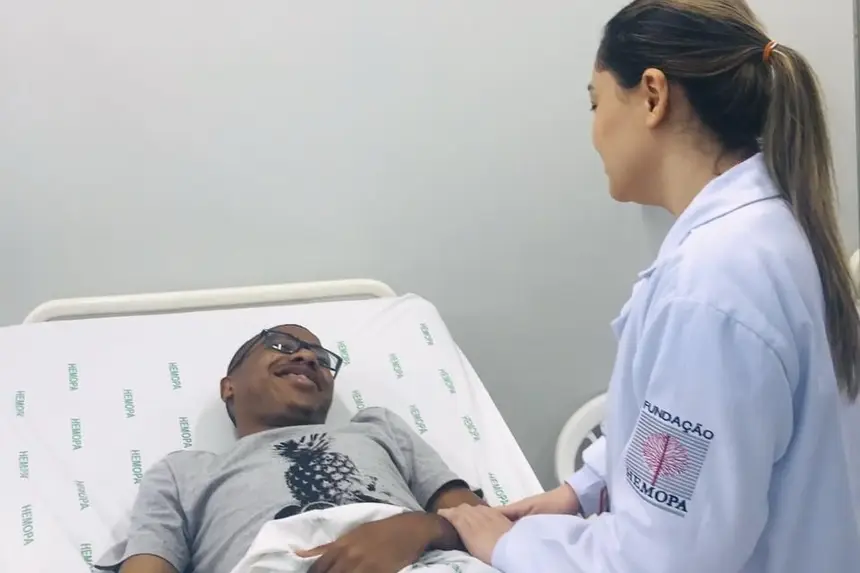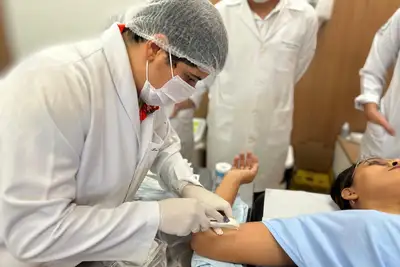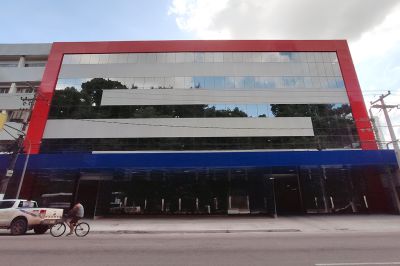On World Gaucher Disease Day, Hemopa highlights the importance of early diagnosis
With specialized care, patients live with quality and overcome challenges involving this condition

On this Wednesday, October 1st, World Gaucher Disease Awareness Day is observed, a rare, genetic, and hereditary condition. The date is recognized in various countries and aims to increase visibility on the topic, strengthen support for patients and families, and encourage faster diagnoses.
The disease is caused by a decrease or absence of the enzyme beta-glucosidase, responsible for the degradation of fats that accumulate in lysosomes, structures within cells. When this function does not occur, substances accumulate in organs such as the liver, spleen, bone marrow, and, in some cases, the brain. The most common symptoms include anemia, reduced platelet and white blood cell counts, abdominal enlargement, and severe malnutrition.
In Brazil, treatment is provided by the Ministry of Health, with the replacement of the deficient enzyme. In Pará, the Hemotherapy and Hematology Center of Pará
(Hemopa) is a reference in patient follow-up, ensuring lifelong treatment and providing quality of life. Currently, nine patients in treatment are attended by Hemopa.
Pediatric hematologist and coordinator of outpatient care at Hemopa, Saide Maria Sarmento Trindade, emphasizes the importance of continuous assistance. “Gaucher Disease is rare, genetic, and hereditary. When the enzyme beta-glucosidase does not function, fats accumulate in different organs, bringing severe symptoms. The treatment, offered by the Ministry of Health and carried out at Hemopa, is lifelong and ensures a better quality of life for those living with the disease,” she clarifies.

Diagnosed in childhood, patient Luiz Renan Souza Mendes, 25, recalls spending a good part of his early years in hospitals, without doctors being able to identify the problem. “They always said it was water belly because my liver and spleen were very enlarged. I was constantly hospitalized, and my mother didn’t know what to do anymore,” he remembers.
The diagnosis only came after a biopsy performed at Hemopa. “I started treatment around the age of two. Today, I receive enzyme replacement every 15 days. For me, Hemopa is like family, my second home. Here I was welcomed, made friends, and grew alongside other patients,” he states.
Luiz highlights the importance of treatment for quality of life: “I no longer feel the pains or weaknesses I used to. I can study, engage in physical activities, and have a normal life. The medication is my life; it gives me strength for everything.”
For him, the awareness day also plays a fundamental role. “Talking about this day is very important because it informs people about a disease that almost no one knows,” he emphasizes.
The Hemopa Foundation provides specialized assistance and contributes to ensuring that patients have an active and healthy life. Furthermore, the institution reinforces the importance of raising awareness about rare diseases, not only to encourage early diagnoses but also to combat prejudice and misinformation. The follow-up and treatment of patients with Gaucher Disease are provided free of charge by the Unified Health System (SUS) through the Hemopa Foundation.










